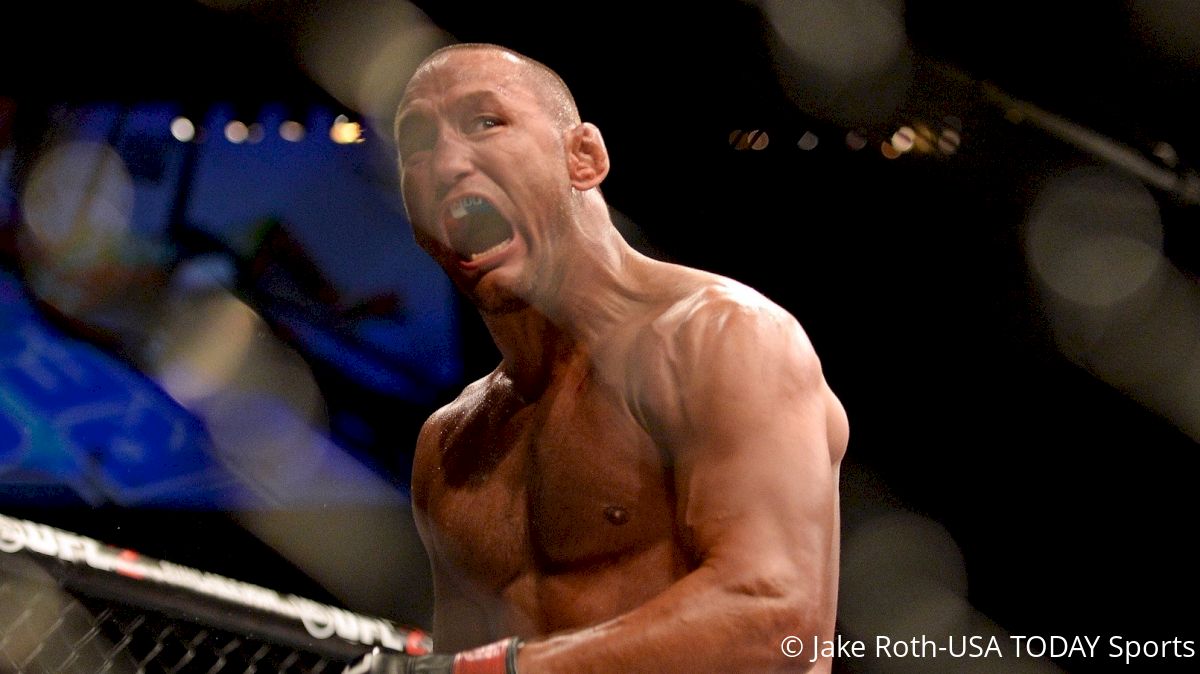Dan Henderson Reflects On What Made PRIDE Special
Dan Henderson Reflects On What Made PRIDE Special
Former UFC title challenger and PRIDE champion Dan Henderson looks back on his time in Japan.

Dan Henderson could very well go down as the fighter with the greatest resume of all time.
The former Olympic wrestler transitioned to mixed martial arts and forged a career that saw Henderson claim championship gold in nearly every major promotion around the globe. And while he wasn't able to add a UFC belt to that list before he retired last year, Henderson competed for the title multiple times coming up short.
Following his loss to Michael Bisping last October in London, the "H-Bomb" slinger decided to call it a career. Six months after that decision became final, Henderson spoke to MMAFighting about his time in PRIDE, which is one particular era the majority of longtime fight fans are fond of.
The Japanese promotion dominated MMA in the years before the UFC took hold on the opposite side of the globe and created some of the most memorable matchups in the history of the sport.
"Pride never die," is a popular saying around MMA, and Henderson confirmed with The MMA Hour he keeps that torch burning strong years after he held multiple titles for the organization.
"What made Pride unique was the show they put on," Henderson said. "It was the production, not just the fights. They had great fights but they had a great show, especially if you're there live. You got a little sense of it on TV, but the live events were phenomenal. They had a little different rule set which made the fights a little more exciting. UFC had really exciting fights as well."
And when it comes to what made PRIDE fights exciting, Henderson pointed to tactics the promotion used to ensure the action kept rolling strong throughout each and every bout.
"Pride would give you a yellow card for being a little bit passive, and that meant they would take 10 percent out of your pay. Guys aren't going to be passive when they felt they were winning and risk losing pay.
"They started going over-the-top the last couple of years. They got a little happy taking 10 percent from people, but for the most part, it created a sense that you wanted to be aggressive because you didn't want to lose 10 percent of your pay."
The former Olympic wrestler transitioned to mixed martial arts and forged a career that saw Henderson claim championship gold in nearly every major promotion around the globe. And while he wasn't able to add a UFC belt to that list before he retired last year, Henderson competed for the title multiple times coming up short.
Following his loss to Michael Bisping last October in London, the "H-Bomb" slinger decided to call it a career. Six months after that decision became final, Henderson spoke to MMAFighting about his time in PRIDE, which is one particular era the majority of longtime fight fans are fond of.
The Japanese promotion dominated MMA in the years before the UFC took hold on the opposite side of the globe and created some of the most memorable matchups in the history of the sport.
"Pride never die," is a popular saying around MMA, and Henderson confirmed with The MMA Hour he keeps that torch burning strong years after he held multiple titles for the organization.
"What made Pride unique was the show they put on," Henderson said. "It was the production, not just the fights. They had great fights but they had a great show, especially if you're there live. You got a little sense of it on TV, but the live events were phenomenal. They had a little different rule set which made the fights a little more exciting. UFC had really exciting fights as well."
And when it comes to what made PRIDE fights exciting, Henderson pointed to tactics the promotion used to ensure the action kept rolling strong throughout each and every bout.
"Pride would give you a yellow card for being a little bit passive, and that meant they would take 10 percent out of your pay. Guys aren't going to be passive when they felt they were winning and risk losing pay.
"They started going over-the-top the last couple of years. They got a little happy taking 10 percent from people, but for the most part, it created a sense that you wanted to be aggressive because you didn't want to lose 10 percent of your pay."